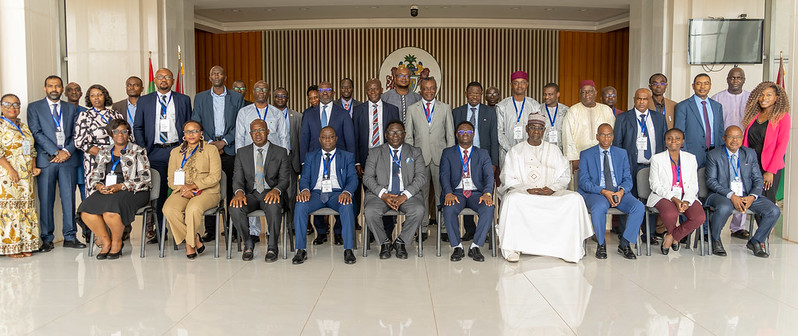
About The Africa Higher Education Centers of Excellence (ACE) Project
The Africa Higher Education Centers of Excellence (ACE) Project is a World Bank initiative in collaboration with governments of participating countries to support Higher Education institutions in specializing in Science, Technology, Engineering and Mathematics (STEM), Environment, Agriculture, applied Social Science / Education and Health. It is the first World Bank project aimed at building the capacity of higher education institutions in Africa.
The first phase (ACE I) was launched in 2014 with 22 Centers of Excellence in nine (9) countries across West and Central Africa – Benin, Burkina Faso, Cameroon, Côte d’Ivoire, The Gambia, Ghana, Nigeria, Senegal and Togo. The Project aims to promote regional specialization among participating universities in areas that address specific common regional development challenges. It also aims to strengthen the capacities of these universities to deliver high quality training and applied research and meet the demand for skills required for Africa’s development. The second phase (ACE II) was launched in East and Southern Africa with 24 centers across 8 countries including Ethiopia, Kenya, Malawi, Mozambique, Rwanda, Tanzania, Uganda and Zambia.
Based on the initial successes, the World Bank and the French Development Agency (AFD) in collaboration with the African governments, launched the ACE Impact Project in 2018 to strengthen post-graduate training and applied research in existing fields and support new fields essential for Africa’s economic growth. The new areas include sustainable cities; sustainable power and energy; social sciences and education; transport; population health and policy; herbal medicine development and regulatory sciences; public health; applied informatics and communication; and pastoral production. Under ACE Impact, there are 43 ACEs (25 new ones and 18 from ACE I); 5 Emerging Centers; 2 “top up” centers in Social Risk Management and Climate Change; and 5 Colleges of Engineering, altogether making 54 project sites.
Project Objectives
The ACE Impact Project seeks to:
(i) Enhance capacity to deliver regional high quality training to address the development challenge.
(ii) Enhance capacity to deliver applied research to address the regional development challenge.
(iii)Build and use industry/sector partnerships to enhance impact of the Center on development and increase relevance of the centers education and research.
(iv) Build and strengthen regional and international academic partnerships to raise quality of education in other institutions in the region.
(v) Enhance governance and management to improve monitoring and evaluation, administration, fiduciary management, transparency, ability to generate resources, and project implementation.
Selection of ACE Impact Project Centres
(i) call for proposals to institutions;
(ii) submission of Center of Excellence proposals through their respective governments to the regional facilitation unit; and
(iii) a systematic and detailed evaluation of proposals by independent African and international experts according to pre-defined criteria.
ACE Impact Project Partnerships
As of February 2020, two key partnerships for the ACE Impact Project had been established.
These are the IBM & World Bank Digital Skills Partnership whose vision is to build a self-sustaining ecosystem, fostering academia and industry partnerships that build the capabilities of universities to facilitate digital trainings and infrastructure at all levels.
The second partnership involves the French Development Agency (AFD) Partner Project and aims to support the establishment of Thematic Networks among the ACEs and AAU’s capacity building in Research Management.
